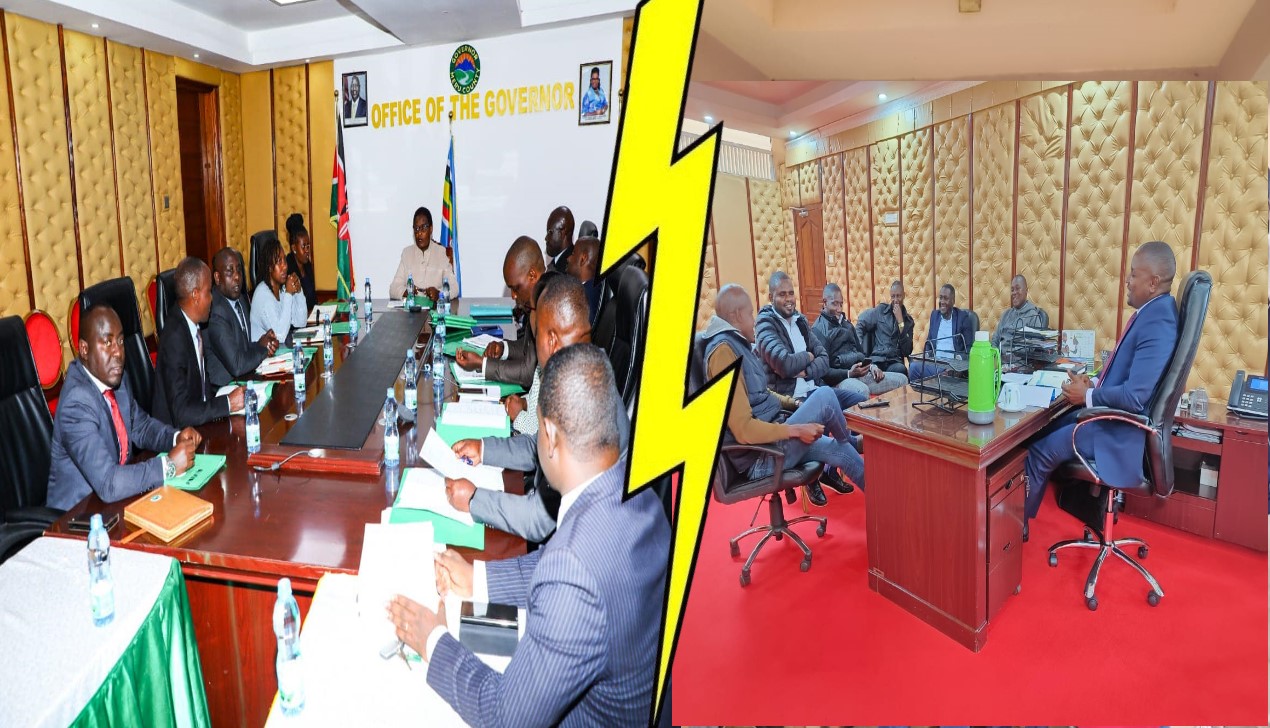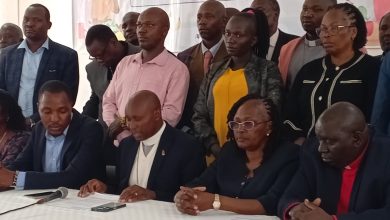Meru’s governance crisis deepens amid impeachment drama

By Gerald Mukambu
The political landscape in Meru County has been thrown into turmoil following the impeachment of Governor Kawira Mwangaza.
The situation has become even more complicated with a High Court ruling that granted her a temporary reprieve, casting doubt on the county’s leadership.
Confusion erupted after a gazette notice issued by Senate Speaker Amason Kingi confirmed the Senate’s resolution to impeach Mwangaza. This notice, dated August 20, coincided with a High Court order that suspended the impeachment proceedings, creating a peculiar dance between legal directives and political manoeuvres.
In a bold act of defiance, Mwangaza re-entered her office at the County Government headquarters, where she announced her intent to conduct a cabinet meeting, proclaiming her authority as the elected Governor.
This declaration alarmed her opponents, particularly Members of the County Assembly (MCAs) who are adamantly opposed to her leadership. They cautioned that any official business conducted by her was illegitimate.
Reactions from local leaders, political analysts, and residents have been polarized, shaped largely by their political affiliations.
Activist Mike Makarina, who leads an organization for people with disabilities, expressed his unwavering support for Mwangaza. He attributed the ongoing strife to deep-rooted male chauvinism and a cultural resistance to female leadership.
“Some men who lost in the last elections are still grappling with their defeats and are now trying to remove Mwangaza from power,” he asserted, emphasizing the need for women in leadership roles.
Christine Ntongai, a vocal critic, condemned the Senate for what she perceives as a biased verdict against the Governor. She urged President William Ruto to dissolve the current County Assembly to restore dignity and respect to elected officials.
Senator Kathuri Murungi, while acknowledging the importance of accountability, advised against politicizing the impeachment process, pledging to ensure thorough oversight during his term.
Imenti Central MP Kirima Ngushine celebrated the Senate’s endorsement of Mwangaza’s impeachment, calling it a victory for the people of Meru.
“God has answered our prayers-things will never be the same again,” he declared passionately.
Meanwhile, Meru MCAs have issued stern warnings to the public, contractors, and county employees against engaging with the supposedly impeached governor.
Majority Leader Patrick Mutuma stated that Mwangaza was undermining the constitution by continuing to act as if she retained authority. He insisted that the Deputy Governor, Mutuma M’Ethingia, should be designated as the acting governor to prevent a vacuum of power.
On social media, Mwangaza announced a Cabinet meeting at the county headquarters, despite ongoing deliberations among the MCAs, further complicating the situation.
Murangiri Aulerio, MCA for Muthara Ward, argued that the court’s conservatory orders were rendered moot by the publication of the gazette notice, reiterating that the law mandates the Deputy Governor to assume the governor’s duties.
Ziporah Kinya, the nominated MCA behind the impeachment motion, expressed gratitude to her fellow MCAs and the Senate for holding Mwangaza accountable for what she termed fraudulent practices.
“Her time in office is over; she failed the integrity test,” Kinya stated confidently.
Igembe East MCA Titus Murithi urged Mwangaza to respect legal proceedings and relinquish her supposed authority until the Deputy Governor is formally installed. He cautioned that any executive member working with her would face repercussions.
Local leaders, including Janet Ndatho, who represents women and youth traders, criticized Mwangaza’s leadership style, branding her a dictator.
“What right does she have to remain in power after the impeachment? The law is clear, and we must uphold it,” she insisted.
Echoing the sentiments of many residents, Eric Kiogora called for the court to maintain the impeachment decision, stressing that Mwangaza’s presence would only lead to further instability in the region’s governance and development initiatives.
As the Meru community grapples with this unfolding crisis, citizens are eagerly awaiting a resolution to the ongoing political impasse that has left them questioning the future of their leadership.




